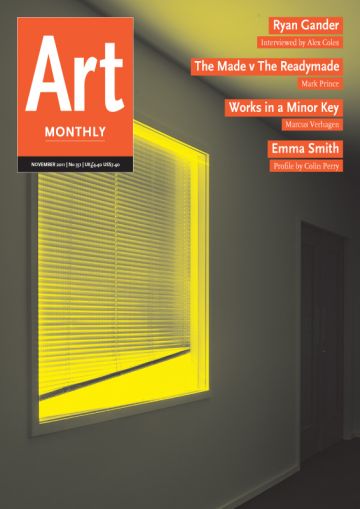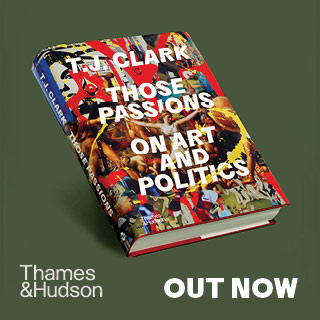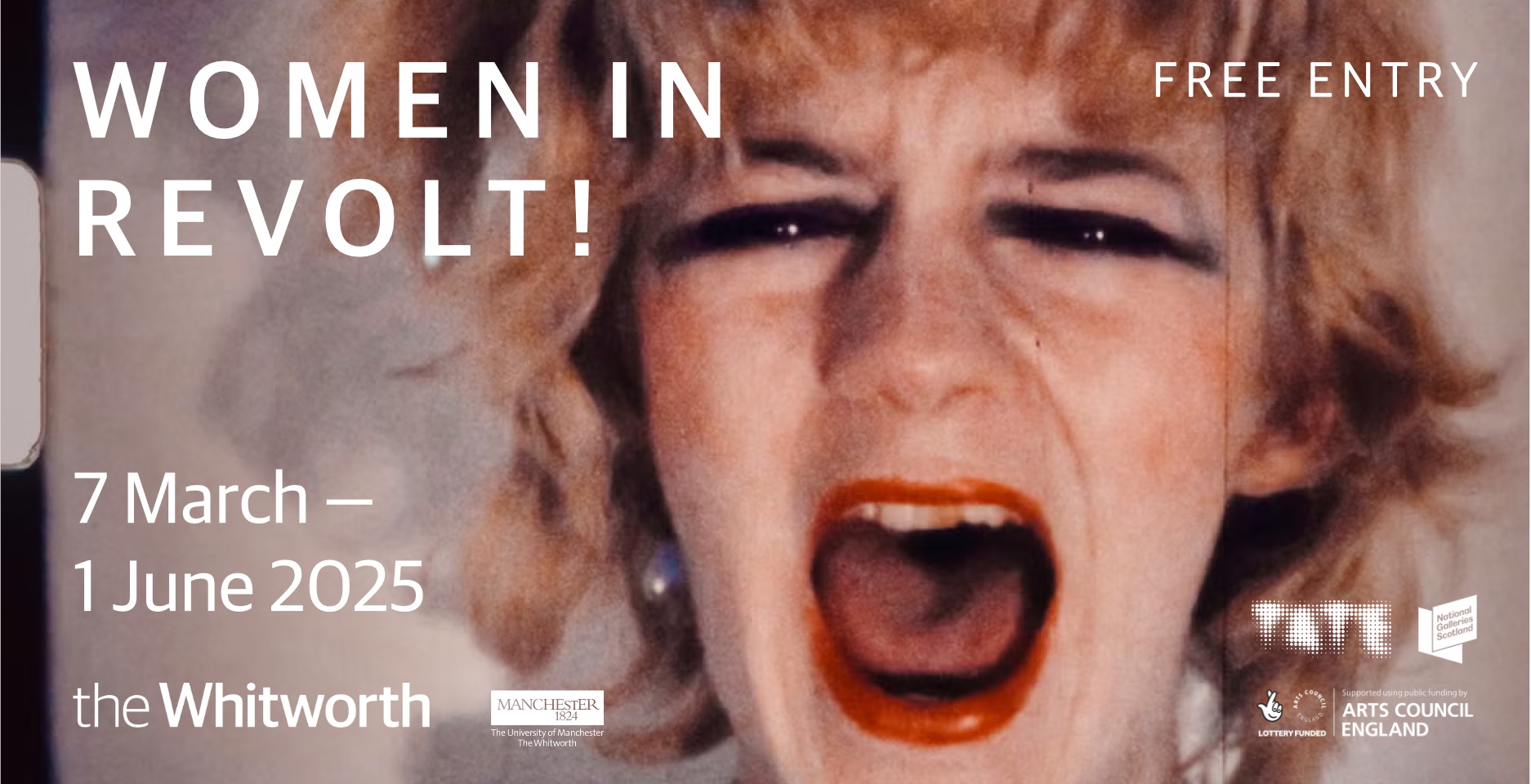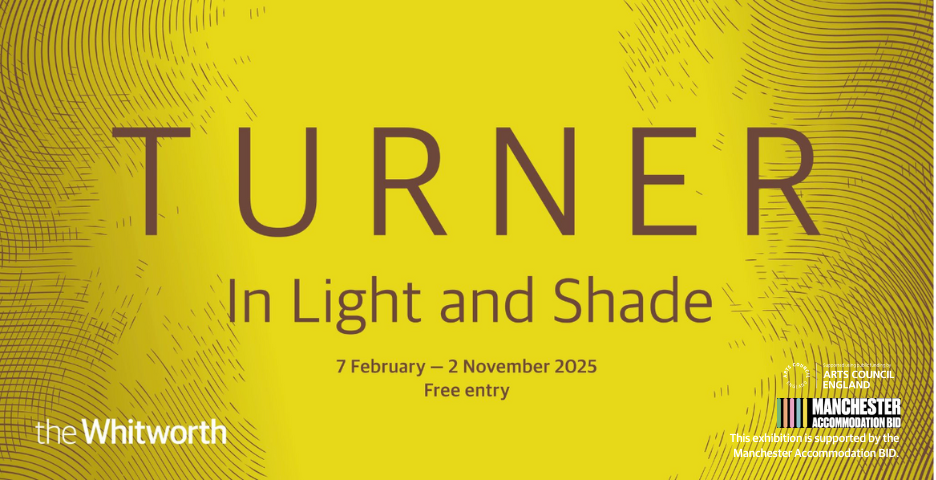Art Monthly 351
November 2011
Ryan Gander
Interviewed by Alex Coles
The Made v The Readymade
Mark Prince
Works in a Minor Key
Marcus Verhagen
Emma Smith
Profile by Colin Perry
Buy Now – select:
Want to read this right now?
Get instant access to the entire back catalogue via Exact Editions from only £8.99!
Contents
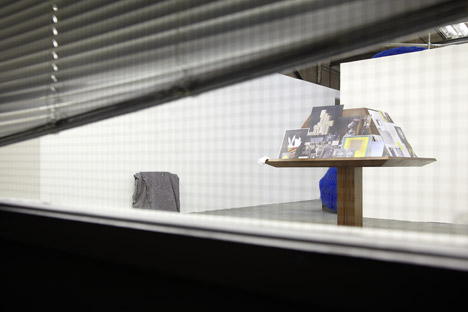
Ryan Gander Locked Room Scenario 2011
Interview
Happenstance
Ryan Gander interviewed by Alex Coles
Currently exhibiting at the Venice Biennale, Ryan Gander studied interactive art in Manchester and his eliptical work frequently involves open-ended investigations and collaborations. Here he discusses working with designers, reimagining publications and architecture, and his recent Artangel commission Locked Room Scenario.
'The whole thing about the current design market is odd. This year I went to Design Miami/Basel. Everything there looked like art that did stuff: here's an Anish Kapoor with a light on top; there's an Antony Gormley with a rug attached to it. So strange! It's all so compromised in its integrity by needing to have a function or be shiny and unique. I thought it was awful. What did you start with that book [DesignArt] you did?!'
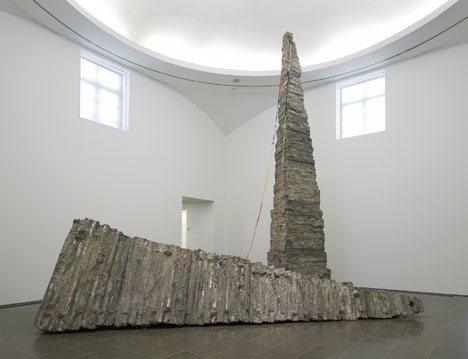
Phyllida Barlow untitled: columns 2010
Feature
The Made v The Readymade
Mark Prince on the resistance of objects
In the story of recent sculpture, making has given way to assemblages and installations of known objects that carry narrative overtones – but there are artists who resist this trajectory. If the readymade reduces the object to a transferrable set of signs, how have artists such as Phyllida Barlow, Tony Cragg, Richard Deacon and, more recently, Nairy Baghramian, Michael Dean and Alexander Heim short-circuited this current?
'If art is expected to function as a vehicle for a set of branded narratives that should be as summarisable as possible from a digital remove, "eliminating recognisable things" might be a form of resistance.'

Jim Lambie Boyzilian (Dancing in the Dark (Mash-up)) 2010
Feature
Works in a Minor Key
Marcus Verhagen discusses the politics of whimsy
The whimsical is often frowned upon as lacking a political edge. But is it not the very lightness of works – by artists such as Alexandra Bircken, Gabriel Kuri and Gabriel Orozco – that engages with the coming austerity's 'liquid modern' state of precarity?
'Whimsy is an awkward category, one that could stretch to cover a vast array of different practices. It is also far from new. But whimsy today does not carry exactly the same implications as it did in the work of Joseph Cornell, for instance, or Alighiero Boetti, or even Tom Friedman.'
Comment
Editorial
Taking Stock
It is a year since the Tory-led coalition government published its Comprehensive Spending Review and adopted former BP CEO and now Tate chairman Lord Browne's suggestions for increasing student fees and eliminating funding for arts and humanities courses. At the time, the government argued that student numbers would not be affected – recent evidence shows otherwise.
'The facts bear out last year's worst predictions: figures released by UCAS show that overall admissions to university have fallen by 9%, while Goldsmiths – seen by many as the flagship of fine art education in England, especially abroad – saw a drop of 35%.'
Letters
Elizabeth Price responds again to Peter Suchin's article on fine art PhDs, and Peter Suchin once more argues his case. Kristin Kreider is unhappy with John Douglas Millar's article on art writing, and Millar responds. Mark McGowan rails against the art world's moral bankruptcy.
Artnotes
The Whitechapel Gallery becomes the test case for new endowment funding; the Andy Warhol Art Authentication Board closes following its numerous legal tussles; Venice Biennale has an unwelcome new chairman foisted upon it; organisations chase diminishing funds; museums get into hot water over deaccessioning and forgeries; all the latest news on galleries, prizes, people, events and more.
Submissions: Send Artnotes info to artnotes@artmonthly.co.uk
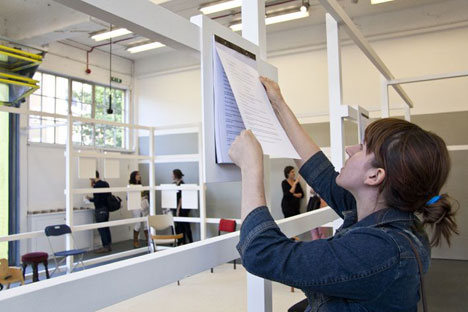
Emma Smith Playback 2011
Profile
Emma Smith
Colin Perry profiles the socially engaged artist
Emma Smith embeds herself into specific social contexts and produces participatory performances that draw outsiders into an engagement with issues driven by local agendas.
'The time Smith spends among communities and in a specific place is one of the fundamental aspects of her practice. It runs counter to the idea of art as a form of transient tourism, in which the specialist artist is parachuted into a location to engender some form of social betterment.'
Reviews
Exhibitions
Arte Povera 1968
MAMbo, Bologna
Martin Holman
Barry Flanagan: Early Works 1965-1982
Tate Britain
Mark Prince
Richard Tuttle: Light & Colour
Modern Art, London
Mark Prince
Emma Hart: TO DO
Matt's Gallery, London
Larne Abse Gogarty
Josephine Meckseper
Timothy Taylor Gallery, London
Alison Green
3D-2D-3D-2D
Camberwell Space, London
Eliza Williams
Roy Ascott: The Syncretic Sense
Space, London
Omar Kholeif
Anri Sala
Serpentine Gallery, London
David Ryan
Between Heaven and Earth: Contemporary Art from the Centre of Asia
Calvert 22, London
Stephen Lee
Camulodunum
Firstsite, Colchester
Martin Herbert
New Contemporaries 2011
Site Gallery & S1 Artspace, Sheffield
Pryle Behrman
Report
Education
Paradox – Fine Art European Forum
Maria Walsh on the European art education conference
'Contrary to Bologna's treaty that change should come from bottom up and that institutions should be autonomous, the changing face of fine art education is felt by those at the bottom as stemming from a super-structural level that relates to but is also eerily separate from the experience of working as a lecturer in art education.'
Salerooms
London
Italy v the World
Colin Gleadell on the Frieze-week sales
'Last month's Frieze-week auctions were up against an escalating international debt crisis and looked to be weighed down by it.'
Artlaw
Contracts
Editions v Series: Picking up the Pieces
Henry Lydiate on selling off dismembered artworks
'The court agreed, stopped the sale of the single-panel painting and ordered that the work must not be taken apart – not only when publicly exhibited, but also privately.'
Listings
Exhibitions
Exhibition listings
Art Monthly's exhibition listings can also be viewed online.

